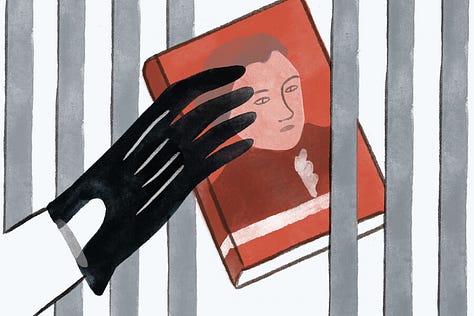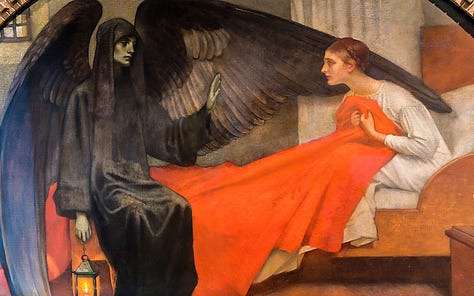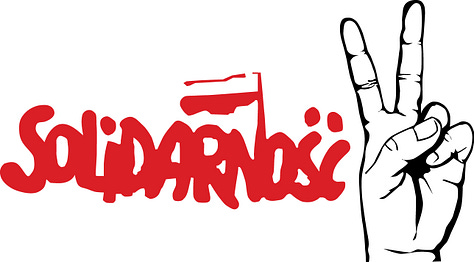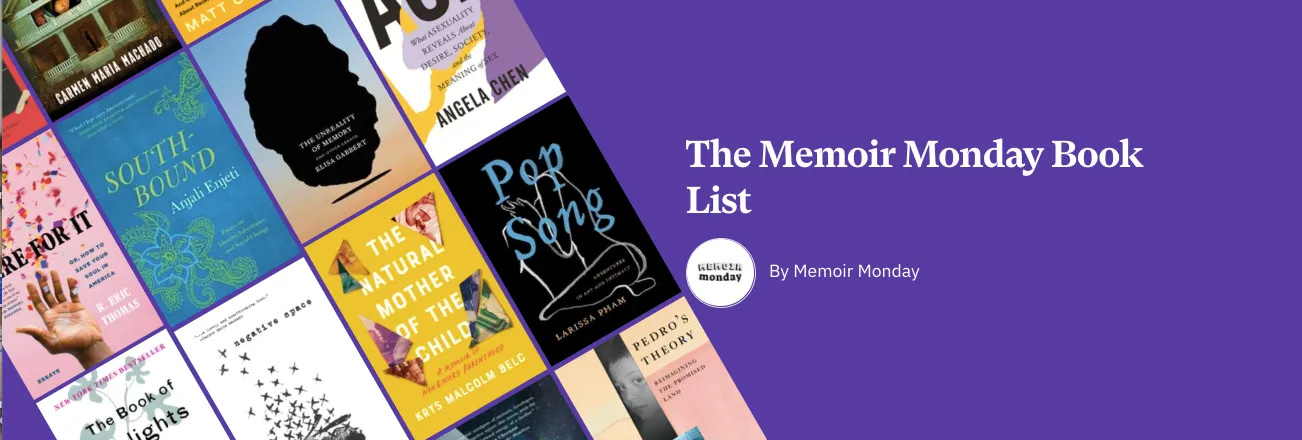Welcome to Memoir Land—a newsletter edited by
, now featuring three verticals:Memoir Monday, a weekly curation of the best personal essays from around the web brought to you by Narratively, The Rumpus, Granta, Guernica, Oldster Magazine, Literary Hub, Orion Magazine, The Walrus, and Electric Literature. Below is this week’s curation.
First Person Singular, featuring original personal essays. Recently I published “On Silence (or, Speak Again)” by
. A new essay is coming soon.
*Submissions are currently paused for First Person Singular. I’ll do a limited submission period this fall. Stay tuned…*
The Lit Lab, featuring interviews and essays on craft and publishing. It is primarily for paid subscribers. Recently I published an interview with Hysterical author and Tragedy Plus Timenewsletter writer Elissa Bassist. Later this week there’ll be a new installment of “The Prompt-O-Matic.”









Essays from partner publications…
Homesick
by Zarina Zabrisky
“I inherited a few frail linen rushniks, blood-red poppies blossoming on thin fabric. Poppies, abundant here, protect the household and symbolize the blood of soldiers fallen on the battlefield. One of my would-be life storylines is encoded on this rushnik. In 1986, my teenage love and I stole gentle-petaled poppies near Chornobyl, and in a nearby village, we made heroin and plans to get clean and build a home. We knew nothing of radiation. The Soviet authorities kept the explosion a secret for as long as they could to avoid panic and to support belief in the Communist Party. Two years later, I gathered the strength to leave my adolescent heroin romance—and fiancé—behind. I stumbled upon his name on the list of missing prisoners of war in 2022.”
I Was a Bank Robber Until I Read Kant
by Robbie Dillon
“It wasn’t as dramatic as it sounds. Employees were under strict orders to co-operate, and the police would usually allow you plenty of time to get the job done—no point trapping a bunch of teenage sociopaths inside a bank full of potential hostages. But the risks were, nonetheless, real.”
The Politics of Chronic Illness Memoirs
by Kate Roberts
“For as long as I have experienced chronic illness, stories are how I have made sense of my body—to myself or others. I have told these stories to those wearing the all-knowing white coats. I have told these stories to those in cut-off jean shorts sipping cold beers. I have told these stories to myself, staring at the ceiling at 3 a.m., trying to piece together the symptoms and experiences that brought me to this present moment. To heavily paraphrase Joan Didion, we tell stories to see our lives lived.”
I Was a Contestant On an Early Aughts Reality Show So I Could Be The Hero of My Story
by Maura Finkelstein
“Listen, I get it—it’s fun to hate fictionalized versions of real people on reality television—it allows us to contextualize our own behavior in contrast to what we are seeing, it allows us to feel morally superior as we workshop how we might instead react to the action we see on screen. But most discussion about this conflict focuses on individual behavior and reaction and ignores the structural pieces at play. What do the participants know? What are they being told? What are the rules of their experience and how does sloppy editing and the actions of a production team play into the constructed world we encounter as viewers?”
Cairo Song
by Wiam El-Tamami
“Cairo. From my parents’ seventh-floor balcony I watch pigeons swoop and dive, as frantic as the city below them. Cairo is a relentless roar. A barrage of car horns, motors rushing and rumbling. Gangs of street dogs, barking, snarling, stalking the neighborhood. Scraping, drilling, grinding, vendors yelling out their wares, planes cleaving low through the sky. The air is an acrid haze, almost gritty, tinged with smoke.”
Solidarność
by Jehanne Dubrow
“I don’t remember if my parents ever told me these things were illegal to possess. But somehow I knew not to speak about the objects everywhere in our house, the dissident posters, flyers, stickers, T-shirts, and even samizdat postage stamps that had been sent unlawfully through the Polish mail as an act of resistance.”
Ramona at Midlife, Brooke at Midlife
by Brooke Berman
“No vision board, manifestation guru, bullet-journaling or career coach can change the sad fact that gendered ageism is alive and well — and to bastardize the since-retracted 1986 Newsweek story claiming that a woman in her 40s has a better chance of being killed by a terrorist than getting married (which, by the way, I found to be totally untrue—I got married and had a baby at 41) — it’s pretty hard for a woman filmmaker over 40 to get a new agent.”
On Silence (or, Speak Again)
by
“When is saying nothing required to survive the day, and when is it being selfish or apathetic or self-vanquishing? I’m asking honestly.”
Essays from around the web…
Warm Blood
by Sharanya Deepak
“As Zafar and I begin to talk, the scene that brought me to the footpath returns like an old memory. Zafar had been watching the scene from across the street. Earlier that morning, I left the house in a rush, resigned to my late start. I hated my job on the other side of the city, but I looked forward the smaller bits of the day — the moment I would fling myself into a motorized rickshaw with others from my neighbourhood; my transit in the women’s coach of the Delhi metro; watching the city’s scenery change from farmland to administrative buildings to malls, like in generic photo-books found in the bags of Western travellers.”
What Getting a Mastectomy as a Teenage Boy Taught Me about Masculinity
by Kevin Wood
“Today, conversations about gender are common. The acceptable behaviors we assign to bodies are questioned. Not so in the early 90s. Not in conservative, deep-red Texas, where I grew up. The idea of ‘being a man’ had distinct definitions. That I might have breast cancer in this hyper-masculine world was highly ironic.”
I Spent Years Unsure If I Wanted Kids. After One Devastating Incident, I’m Finally Making Peace With My Choice
by Tiffany Dyba
“Writer Adrienne Rich provided a grave distinction between two meanings of motherhood: “the potential relationship of any woman to her powers of reproduction and to children” on the one hand, and to “the institution, which aims at ensuring that that potential — and all women — shall remain under male control” on the other…'Patriarchal motherhood' is the idea that all women want to be mothers, and that motherhood is how women find their joy and purpose. But what if some of us don’t?”
No Pedal Boats
by Wendy Mages
“After dinner, we want to do something fun. The obvious choice is the pedal boats, but the boys’ mom says, “ No way.” It turns out, the boys’ dad, who isn’t even here, has a rule: No pedal boats. He thinks they’re too dangerous. We think this is ridiculous. My sister and I have been going out in the pedal boats for years. Besides, there are no police reports warning about the hazards of pedal boats. No newspaper headlines about pedal boat calamities on the Kalamazoo River. But it’s a no go. A rule is a rule.”
Postcard from Athens: Letter to a Thief
by Vimla Sriram
“My moment of loss is hard to pinpoint. I was on the bus to Syntagma Square, squeezed between bodies, comfortable with the smells sealed in my memory of college days in Delhi, then I got off at the sun-dripped stop, ready to take in Syntagma’s expanse, be among the swarm passing by the regal parliament building and linger at the palm tree-lined garden. But when I couldn’t pay for ice cream, I felt the kind of foreboding you feel in the pit of your stomach when you are afraid to acknowledge what your brain has already registered. My wallet, that fat old wallet, brown and worn, which usually sat like an egg amongst keys and other strange objects at the bottom of my bag, was gone.”
🚨Announcements:
📢 CALL FOR SUBMISSIONS: Share the stage with Peter Orner for Tell-All Boston’s Nov. 9th Reading Event on Conversations
Want to share the stage with acclaimed writer Peter Orner at Tell-All Boston's next event, Readings On Conversations, on November 9th? Tell-All Boston is a reading series brought to you by GrubStreet and curated by alumni of GrubStreet’s Memoir Incubator and Essay Incubator. The series will be selecting 3-4 Greater Boston and/or New England-area writers to read their writing on "conversations" alongside Peter Orner at this special event! Submit your work to Tell-All Boston by October 5th to be considered for inclusion!
📢 Take my Skillshare workshop on blending the individual and the collective in your essays!
📢 Attention Publications and writers interested in having published essays considered for inclusion in our weekly curation:
By Thursday of each week, please send to memoirmonday@gmail.com:
The title of the essay and a link to it.
The name of the author, and the author’s Twitter handle.
A paragraph or a few lines from the piece that will most entice readers.
Because of data limits for many email platforms, going forward we will only include artwork from our partner publications. No need to send art.
*Please be advised, however, that we cannot accept all submissions, nor respond to the overwhelming number of emails received. Also, please note that we don’t accept author submissions from our partner publications.
You can also support Memoir Monday—and indie bookstores!—by browsing this Bookshop.org list of every book that’s been featured at the Memoir Monday reading series. It’s a great place to find some new titles to add to your TBR list!







📖🖋️